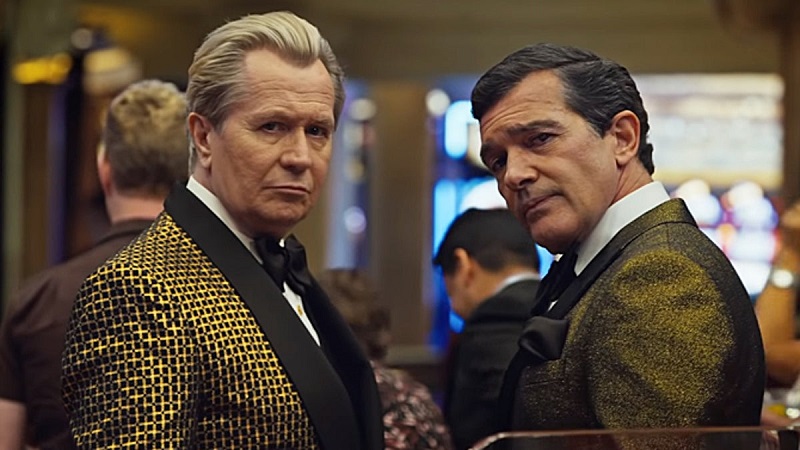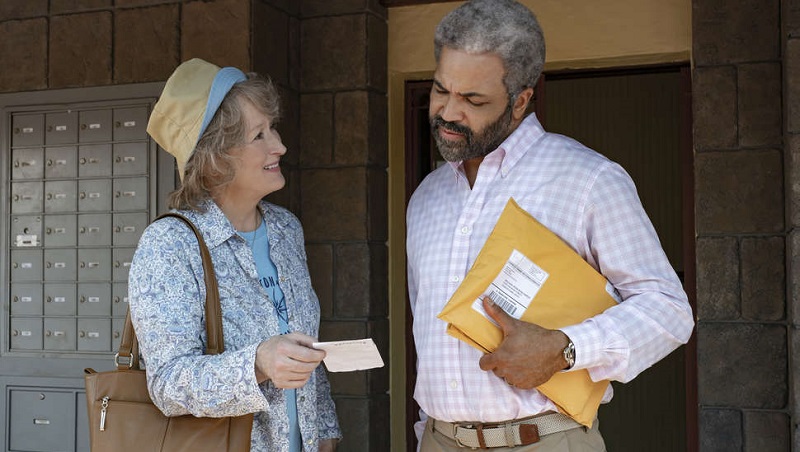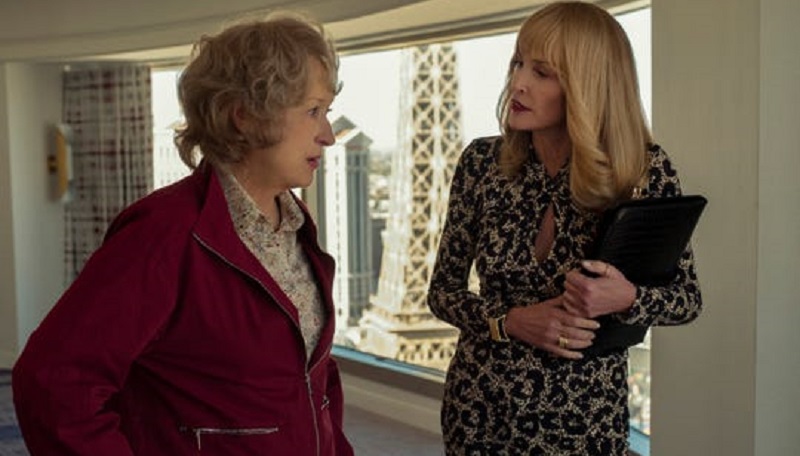Movies can be many things. While we watch them primarily for entertainment they can also fall into the bracket of pure art or even used to make a strong political or social statement. With Steven Soderbergh’s latest effort, The Laundromat, out now on Netflix, he tries to straddle the lines between all three of these things to mostly brilliant, but at times, rather bland results.

The Laundromat is based on the book Secrecy World: Inside the Panama Papers Investigation of Illicit Money Networks and the Global Elite by Jake Bernstein. The script by Scott Z. Burns focuses on the infamous Panama Papers scandal, telling the story of Ellen Martin (Meryl Streep) whose dream vacation takes the wrong turn and leads her (and many others) down a rabbit hole of shady dealings and corruption that allows many rich people to simply get richer while dodging the tax laws of their respective countries. All of this shameful behaviour is eventually traced to a law firm in Panama City run by Jürgen Mossack (Gary Oldman) and Ramón Fonseca (Antonio Banderas), and Martin uncovers a truth that is bigger and scarier than she or the rest of the people who watch this, will have ever imagined.
While the movie is based on true events and (some) real-life people, it is told in a very exaggerated manner designed to make fun of the whole affair and make a statement about it rather than empathise with any of the characters involved.

The first thing that stands out about The Laundromat is how much it is trying to emulate The Big Short in its method of storytelling. The film utilises a lot of fourth-wall breaking to explain its various financial terms and what is going on with the narrative, while also allowing the various characters to make overt statements about the whole debacle.
Unlike The Big Short though, this film lacks a lot of the intended bite, as it jumps between its different storylines and characters with a lot less purpose and poignancy. In fact, despite the movie running for only 95 minutes, it still felt overly long and slow-moving. The reason for this is largely the two-paced editing – by Soderberg himself using the pseudonym of Mary Ann Bernard – which sees the movie start off slowly, only to race through some dramatic moments with little intensity and then unravel most of the dodgy dealings of Oldman and Banderas’ characters (who also serve as narrators of the film), yet somehow then continue with two more interconnected storylines that, while adding some entertainment value, bring nothing extra to the overall narrative.

Despite this, the film remains superbly acted, especially from Streep, Oldman and Banderas who bring a lot of purpose, intensity and excitement to their roles and make the most of its sometimes-middling plot to still keep you invested in their characters. Though I would argue that their often excessive fourth-wall-breaking ruins the film of some connection with these characters and makes you feel like you are watching a documentary at times rather than a story with real characters. These moments also bring about the few moments of comedy which are on offer while the rest of the movie brings about little reason to laugh, often countering each other.
And while the those actors carry the majority of the narrative, they are not alone in providing some exemplary acting as the rest of talented cast, including Jeffrey Wright, David Schwimmer, Matthias Schoenaerts, James Cromwell, and Sharon Stone also do a superb job.

The direction from Soderbergh is also incredibly stylistic as the film transcends into art territory, with the use of many long single-takes and different cinematic styles making the movie a pretty one to watch from a technical perspective. He also gets to flex his muscles as some of the different side-plots allow for a different style of direction and you get to realise just how much of a master of his craft Soderbergh has become over the years.

This flair and flamboyance are clearly just a side distraction to what is otherwise a very clear political statement on how Soderbergh feels about the whole situation, and he doesn’t hold back with a very unsubtle message to the US government on how corporate greed has led to it having laws that allow for the unethical behaviour that allows for the rich to only get richer.
The Laundromat ends up becoming more of a political statement and artistic piece and less pure entertainment as a result. This is likely not going to appeal to everyone and I have a feeling many people won’t be able to watch it past its slow opening. Which is a pity because its overall message is a very important one and the acting on offer is certainly worth it.
Last Updated: October 21, 2019
| The Laundromat | |
|
Incredibly well-acted and stylistically directed, but ultimately The Laundromat ends up trying too hard to be provocative with its political message than it does entertaining.
|
|
|---|---|





















Admiral Chief
October 21, 2019 at 16:07
Schwimmer schtill acting? Schocking
RinceThis
October 21, 2019 at 16:07
This wasn’t an expose any more than the Wolf of Wall-street was.